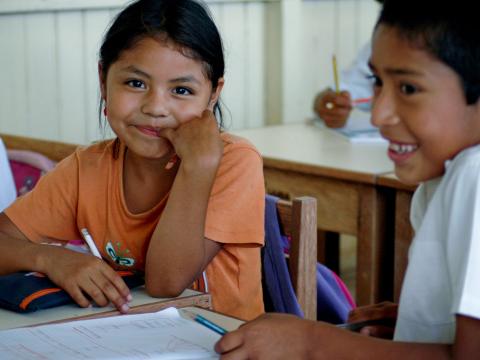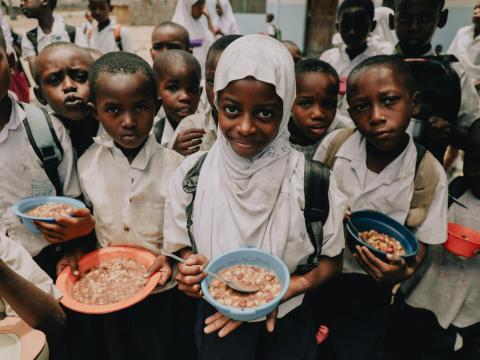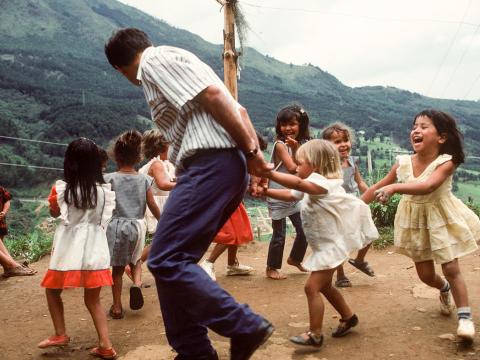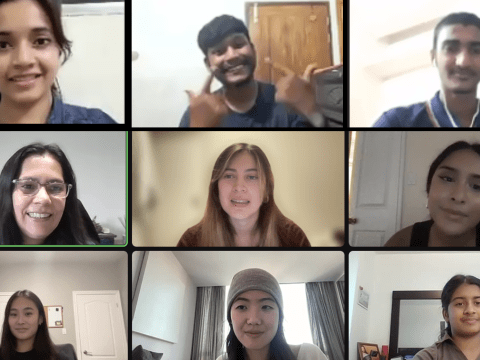
Why social justice and education are vital
17-year-old advocate Sheyla, from Peru, shares why social justice and quality education are imperative for children and young people, and what she wants world leaders to do to ensure these issues are top of their agendas.
Social justice is a fundamental and urgent issue. It means equal opportunities for all people, that people's rights can be fully met and that the State can guarantee it, especially when it comes to children and young people.
Social justice is not only a goal that we must all strive for as citizens, but an absolute necessity in today's world. Every day, we face obstacles that prevent us from achieving global unity and full respect for our fundamental rights.
Education is the engine that drives this change. It is a fundamental right that we all must have access to in an adequate and quality manner. Education is a key tool to continue promoting respect, autonomy, efficiency and above all equality and equity among all.
In Peru, according to the Ministry of Education in 2021, the school dropout rate was 6.3%. Low economic resources of families force children to drop out of school. There are still barriers to inclusion; many schools in rural areas and the jungle do not have adequate infrastructure and educational materials for teaching.
I have seen my classmates who studied with me drop out, either to support their families economically by working, or because of discrimination that generates low self-esteem, depression, and them not wanting to study.
Do you think we are progressing with respect to social justice or are we going backwards? Education is important, for our life, and it is not valued as in other countries. In my school, my friends said that the poor infrastructure and lack of technology implementation in schools was the cause of the withdrawal of many children and young people, but the most notorious cause was discrimination.
In my country, we suffer a lot from a very young age with the type of education we are given; it is not possible to learn in environments with poor infrastructure. That is why it is necessary to invest in education from the earliest stages of life, providing universal access to preschool education and ensure that all schools have adequate resources and trained personnel. In addition, we must promote an education that not only transmits academic knowledge, but also values of empathy, respect and social justice.
But one thing I must make very clear is that, by investing in education, you are not only investing in the future of us children and young people, but also in the future of society as a whole. A society that values social justice is a society that is more prosperous, more cohesive, more resilient to injustice, and one that does not remain silent.
It is important that we express ourselves, not only in meetings with ministers, global leaders and other people of influence, but in commitments that are fulfilled, gathered to achieve a common goal. Imagine if there were many more of us than we are, if every child and young person in the world spoke out about the state of education in their countries, we could make much more progress. We need more spaces and opportunities to speak out and say how the right to education is being violated in our own countries.
I urge governments to improve educational policies, increase the budget, create more programmes that support children with resources, create more jobs to improve the income of families and prevent children from having to work and train teachers to educate children and young people. We need more spaces for participation and above all, I urge them to trust us; our age is not a limit to improve society.
We are the ones who will revolutionise the world that aims at social justice; as long as we are seen as people who are part of a community and not as a burden, physical and psychological abuse towards us will diminish, and only in this way will we be able to break down each of the barriers set up by society.
Sheyla is a 17-year-old youth advocate from Peru who represented children and young people at sessions related to the "Annual Day of the Rights of the Child" at the 55th session of the UN Human Rights Council in Geneva. She is the National Coordinator of the ANALIT (Alianza Nacional de Lideres de Transformación) network in her country and leads the eco-influencers initiative there.


